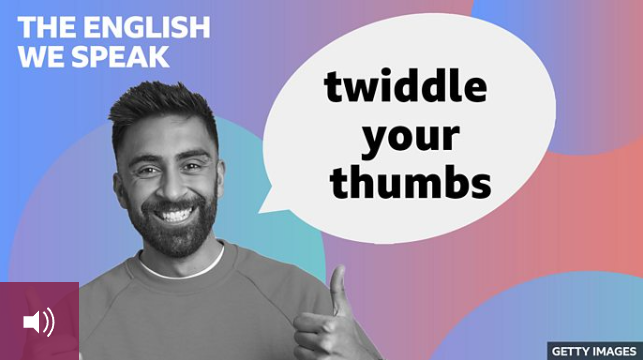Introduction
Having nothing to do can be boring and it can be frustrating just waiting for something to happen. So, what can you do? How about twiddling your thumbs? That’s what this English phrase it all about.
Transcript
Feifei
This is The English We Speak with me, Feifei…
Rob
…and me, Rob. Now, our piece of authentic real English in this programme is, Feifei…
Feifei
… twiddle your thumbs.
Rob
OK, I will… Err, what are we waiting for?
Feifei
Nothing, Rob! ‘Twiddle your thumbs’ is the phrase.
Rob
Oh sorry, Feifei – I thought you were telling me to wait around, not do anything, until something happens.
Feifei
Why would I do that?
Rob
So, you can watch me twiddle my thumbs?
Feifei
No, Rob. The informal phrase ‘twiddle your thumbs’ means to wait around, doing nothing, until something happens. But, you can twiddle your thumbs again, while we listen to some examples…
Examples
Where have you been? I’ve been twiddling my thumbs, waiting for you to arrive.
Just twiddle your thumbs while we work out how the computer works.
I’ve been twiddling my thumbs because I arrived early for the meeting.
Feifei
This is The English We Speak from BBC Learning English and we’re learning about the phrase’ twiddle your thumbs’ which means do nothing while waiting for something to happen.
Rob
We don’t actually have to twiddle our thumbs when we have nothing to do, do we?
Feifei
Of course not. It just describes having nothing to do.
Rob
You mean being bored?
Feifei
Yes, exactly – and you know what is a good solution for stopping you twiddling your thumbs?
Rob
No.
Feifei
Doing something, like making your colleague a nice cup of tea.
Rob
Hint taken. See you later.
Feifei
Bye.
